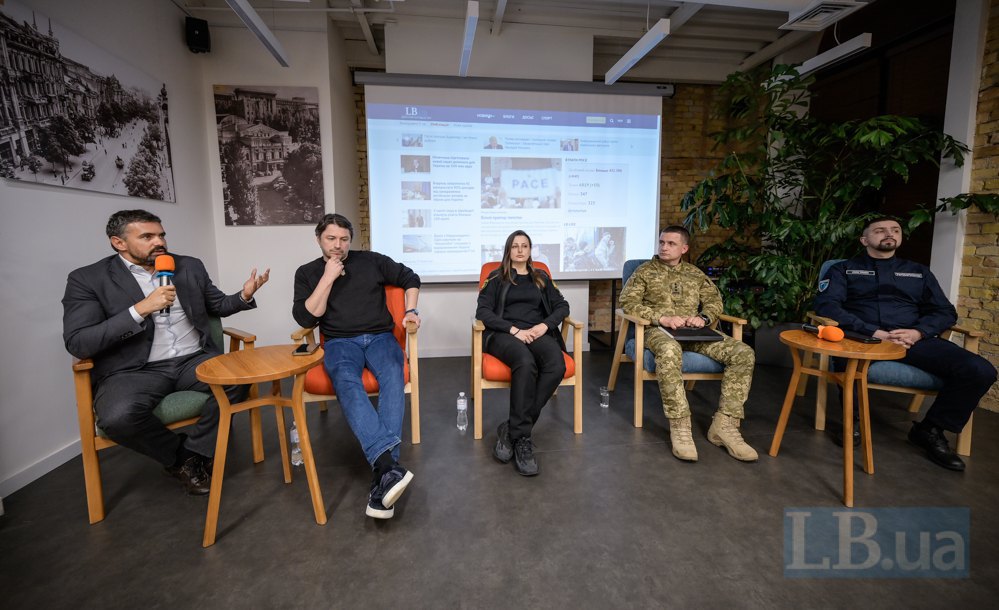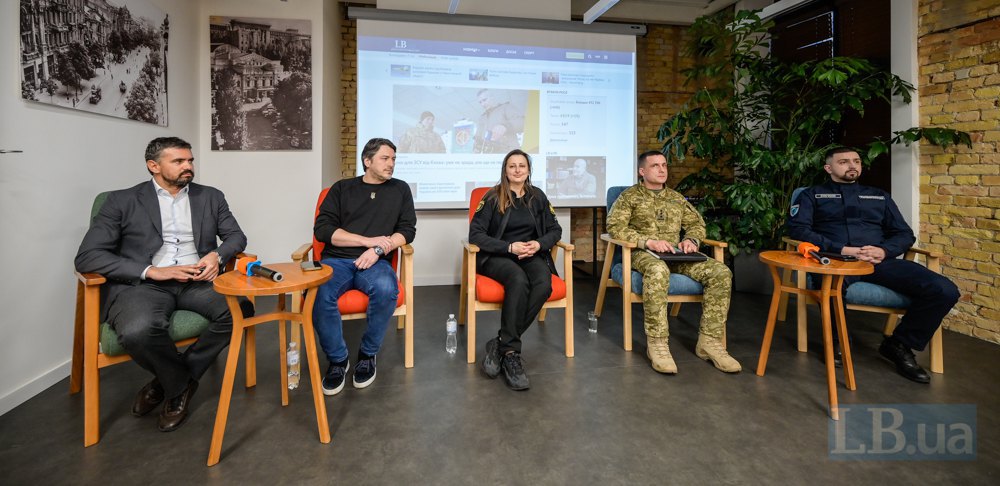
The defence industry is gaining momentum
In 2023, Ukraine managed to double the production of weapons and equipment, and this year it is expected to grow sixfold, said Deputy Minister for Strategic Industries Hanna Hvozdyar.
"There are more and more Ukrainian weapons and equipment at the frontline, and they are completely different. I agree that innovations and technological development are the key to victory for us, but we cannot forget about traditional weapons, the production of which we need to increase, and we are doing just that," she said.
This also concerns ammunition.
"The work is being done, but unfortunately we cannot shout about it at every step for security reasons - our companies often fall victims to Russian shelling, and talented specialists get killed. That is why many things must remain secret so that we can all provide for our army," said the representative of the Ministry of Strategic Industries.
The director-general of Ukrainian Defence Industry JSC, Herman Smetanin, added that last year, its enterprises produced more than 600,000 items of weapons and military equipment, which is a thousand times more than in 2022.
The defence industry is developing in close cooperation with the Armed Forces, so manufacturers can quickly improve their products, Hvozdyar said. This was also confirmed by Armed Forces Deputy Commander-in-Chief Col Andriy Lebedenko. The created innovation ecosystem gives an opportunity to combine production, science and the military, he said. Scientific institutions should study the needs of the frontline, enemy threats, new formats for the use of certain means; the military should voice their wishes and give feedback; and manufacturers should implement all this.
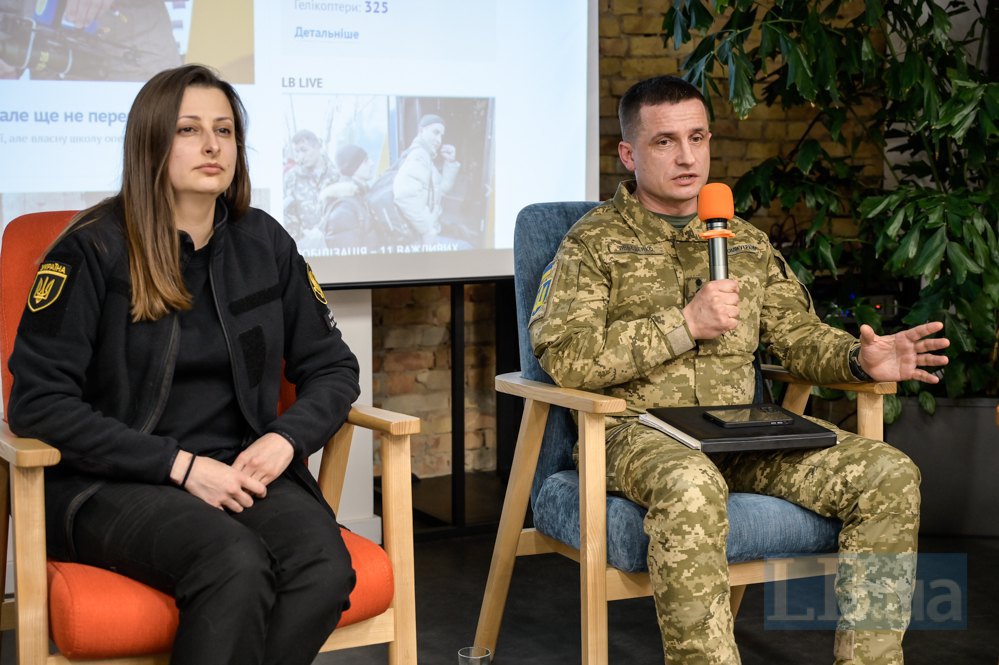
"Such a structure will allow us to accelerate the issue of advanced innovative technologies, provide easy access to them for the Armed Forces, as well as communication with industry to scale up in the shortest possible time, respond quickly to threats that change daily, make adjustments to technical solutions, make requests to our production or foreign partners," he said.
Another positive development is that private business is increasingly involved in the production of weapons and military equipment in Ukraine. Neither companies nor products are announced for security reasons, said Smetanin. "Perhaps they will be announced after the victory. Meanwhile, thanks to private business, he added, a record amount of money has been allocated this year to modernise and increase production of weapons and equipment.
"Today, the capabilities of domestic production, including private companies, are three times higher than the procurement capacity of the Ministry of Defence," he said.
Cooperation between volunteers, business and the state in the defence industry
EFI Group supervisory board chairman Ihor Liski believes that business mobilisation is not sufficient to produce the goods the army needs. He noted that he had contacted the National Security and Defence Council and ministers to learn the army's priority needs, but received no information, so he is helping in a "guerrilla way", but could have launched a systematic production of equipment.
A representative of the Ministry of Strategic Industries noted that this situation is changing - the ministry is opening communication platforms to advise businesses on both their needs and the location of production facilities. The Brave1 defence-tech platform actually tracks all new products, helps with development, documentation, codification, production scaling, etc.
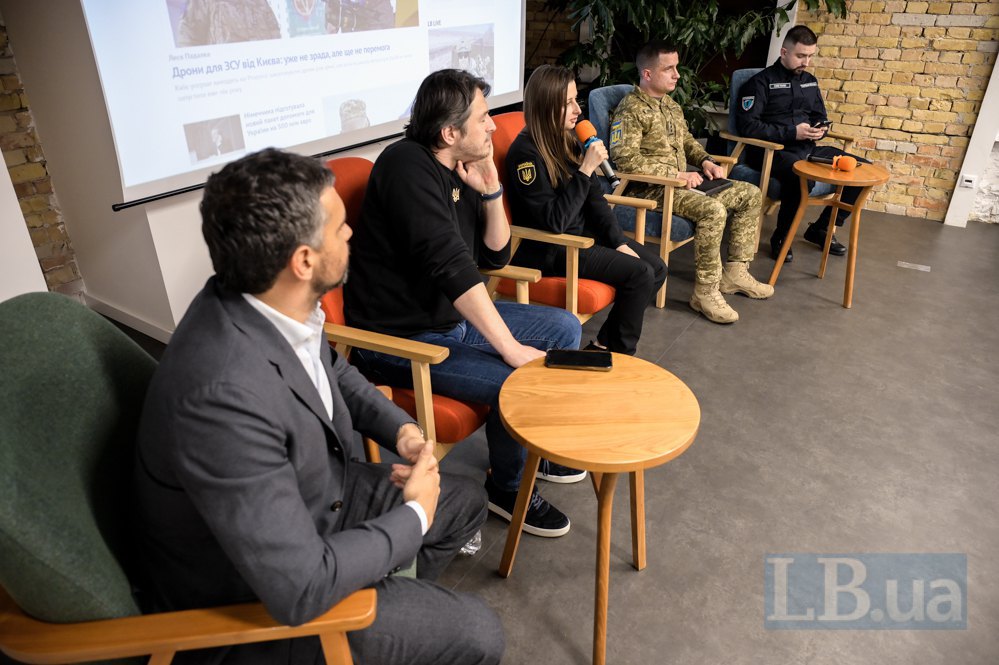
In Ukraine, Prytula said, all new products in the defence industry first go through the sieve of the volunteer community, and only then does the state become interested in them. This was the case with the Mavic drone, which volunteers bought by the tens of thousands (while the state called them "wedding drones", and now it has joined in), and with FPV, aircraft-type drones, and now with electronic warfare.
"On the one hand, it may be good and right that the state should take its time to look around, we have already worked out a story, the military has tested it, we have made purchases, then the state, like a big guy, comes in and takes not hundreds or thousands, but tens or hundreds of thousands of this or that nomenclature at once. But I would like to reduce this logistical burden a little bit," the volunteer said.
However, he can give many examples of productive communication. For example, during the counteroffensive in the Zaporizhzhya sector, the military urgently needed a mine trawl. Through the Ministry of Strategic Industries, and then through the Ukrainian Defence Industry, it became possible to quickly produce it and send it to the front.
The Serhiy Prytula Foundation is also currently equipping command and staff vehicles. The business fully finances this project, as "people who have been brainwashed by Russian propaganda about bad commanders and parasites" refuse to donate to this area. And when the Communications Forces Command provided specialists to install the equipment, the foundation was able to save money on contractors.
The volunteer can cite many such cases of cooperation with private business and state-owned companies. Sometimes there is a spark in this triangle. Sometimes, private manufacturers delay the products contracted by volunteers, letting the SSU, GUR, SSO, etc. go ahead.
"But we are not offended. The main thing is that it all goes where it is supposed to go," Prytula joked.
He believes that public-private partnerships should be encouraged, as this creates competition and drives prices down. For example, an UAV with a range of 800 km and a 30-kg payload, which cost UAH 4 million in December 2022, was contracted for UAH 1.2 million in November 2023, as engineering is developing, new manufacturers are emerging, and competition is emerging.
"Of course, the Ukrainian volunteer movement is a very important component of the future Ukrainian victory. But it is not decisive. No matter how much we love ourselves, no matter how much we praise ourselves (all volunteers in Ukraine are great), we are plugging the problem areas that the state, as a large mechanism, does not have time to respond to quickly. This is our strength - in efficiency, speed of logistics, and, ultimately, in the funds that we all accumulate. But it is definitely only at the level of the state budget that we can tectonically move certain plates," the volunteer stressed.
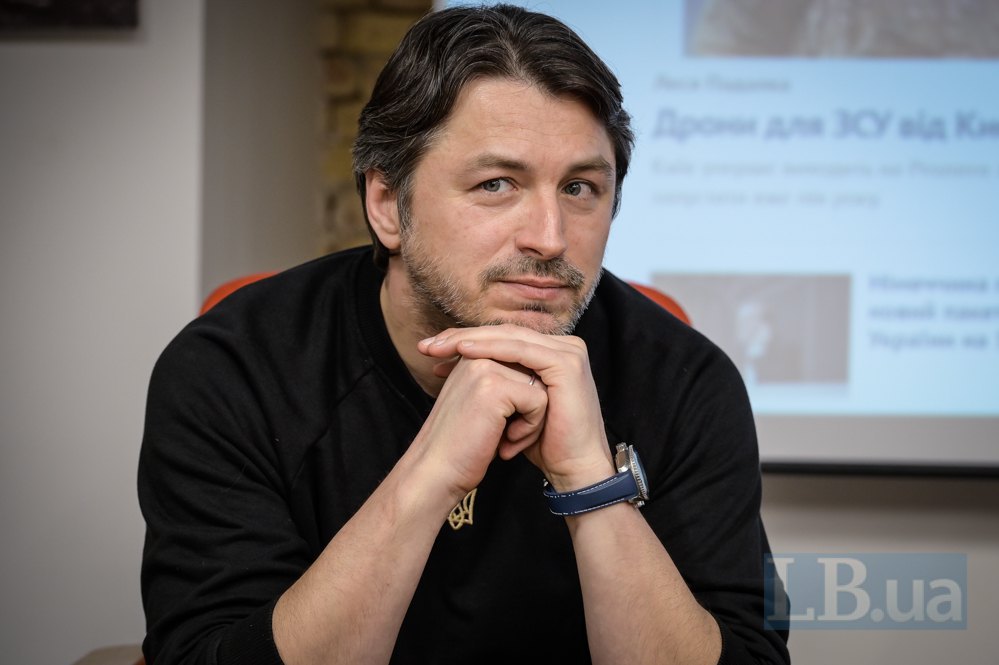
The industry's main challenges: volumes, money, technology
- Volumes
Despite the active development of the defence industry, Ukraine is still 95% dependent on foreign partners for arms supplies, said Ihor Liski.
"We are completely dependent on air defence. And we don't have it. There are developments, but we are not even 10% secure. Not only with systems, but also with missiles for them. Tomorrow, for example, we will be left without missiles. Some MPs and congressmen won't vote for it, and that's it," Liski said.
The same with ammunition, the businessman added. Today, the Czech Republic is looking for them for Ukraine. "And it does it more effectively than a country where hundreds of people die every day. I'm a little bit ashamed of us. I wish we could at least cover our own calibres. Because now the Czechs have not bought something - and that's it: one to seven (the use of ammunition by us and the enemy - Ed.), and that's it. And this is everyday life. I want to look at things more realistically. And the most important thing is to ask ourselves whether we have done everything to prevent this from happening," the businessman said.
Dependence on partners is dangerous not only because of the lack of weapons at the front, but also because of the risk of losing subjectivity, Liski believes.
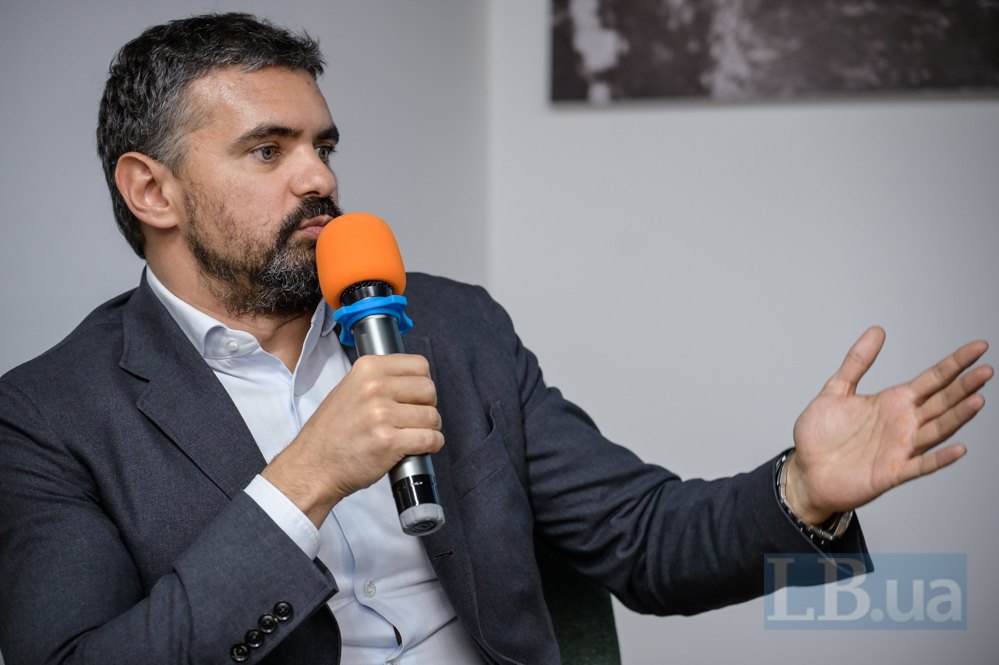
"Imagine that tomorrow the global game changes, the Americans reach an agreement with someone and give us an ultimatum: you sit down with Putin and reach an agreement, otherwise we will cut off your supplies. And we are no longer subjective at all.
We need to understand that tomorrow could be much worse than it is now. If we want to be a subject, if we want a real victory, if we want a long-term, real independence, we must provide ourselves with ammunition," Liski insisted.
Both Hanna Hvozdyar and Herman Smetanin acknowledged that the needs of the frontline today outweigh the volume of domestic production.
The Deputy Minister for Strategic Industries noted that the defence industry is working every day to make Ukraine self-sufficient - production volumes are planned to increase significantly. However, the war is too large-scale, the enemy is too strong to cope with it alone, so alliances with partners cannot be avoided. They also plan to strengthen and develop them, not only in the state-to-state format, but also in the industry-to-industry format.
"The needs of the frontline today are greater than the production volumes of the entire Ukrainian defence industry and most of the defence industries in Europe and the world. Today, we are at war with a country that spends enormous amounts of money from the state budget to purchase weapons and military equipment. Only a few countries in the world can compete with it, as they can afford such expenditures," added Smetanin. Nevertheless, increasing the production of weapons and military equipment is a priority for his company.
- Money
Due to the lack of funds, Ukraine not only produces insufficient weapons, but the Ministry of Defence is unable to purchase even the volumes that are already available.
Ukraine's budget for its own armaments is limited, explained Hanna Hvozdyar. It falls short of our production capabilities (which are three times higher than the Ministry of Defence's procurement capacity, as noted by Herman Smetanin - Ed.) and definitely does not meet the "incredibly high" needs of the Ukrainian army. That is why much of the equipment produced has not yet been delivered to the front, the deputy minister said.
"There is a wheeled medical armoured vehicle developed with the participation of doctors we engaged from the front line to make it comfortable. But it has not been purchased. There are robotic systems... In terms of production, you can see how much equipment has been produced. It's a matter of contracting," she said.
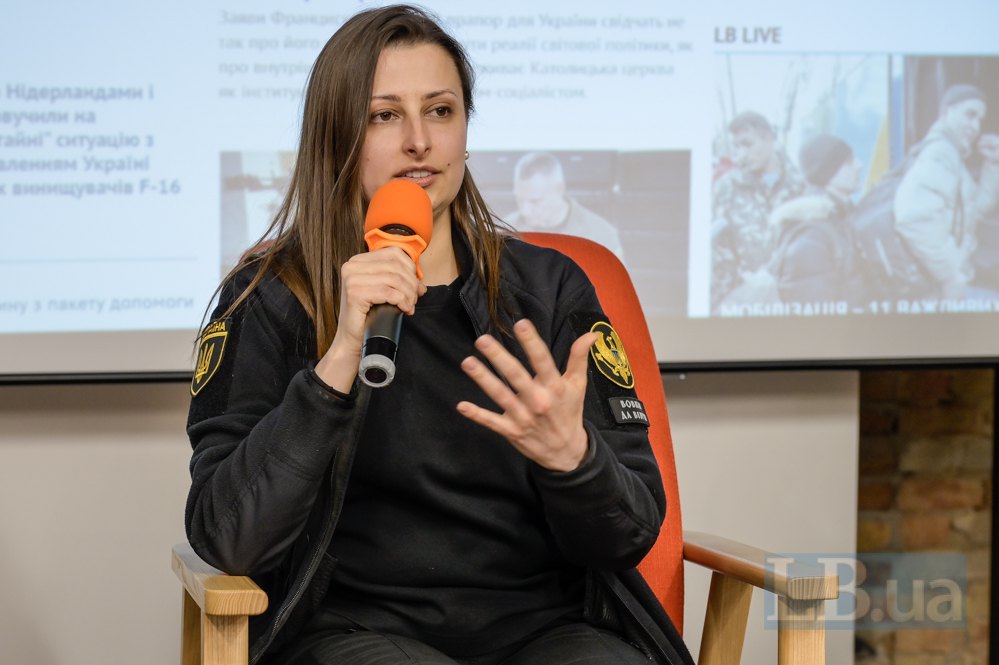
Where to get the money?
First, Hvozdyar said, the government is trying to attract international partners to contract Ukrainian products.
At the same time, it is creating opportunities to produce as much as possible of the components that are currently being purchased abroad. For example, the same drones that are being shipped en masse from China.
The company is also focusing on increasing the participation of Ukrainian businesses in MilTech.
In addition, Prytula believes that Ukraine should look for new markets and new partnerships.
"We welcome the news that Rheinmetall wants to open four plants in Ukraine. We welcome the news that the Swedes will produce armoured vehicles in Ukraine. Baykar is coming here to make Bayraktar, Akinci, etc.
But maybe we should try to go with Ukrainian money to, I don't know, the Czech Republic. In Bulgaria, all the factories that produce 152-mm shells work for us. But this is obviously not enough. We need to go to, I don't know, Bosnia, anywhere. Try to open some joint ventures," the volunteer said.
He also suggested attracting private investment in the defence industry. This raises the issue of arms exports during wartime, which Prytula said should be discussed at the level of the state leadership. But his foundation has already tested the mechanism itself: volunteers raised more than $1.2 million to scale up the production of devices used in the Igla Plus Thermal Imager project, which now allows Igla MANPADS to shoot down missiles and Shaheds.
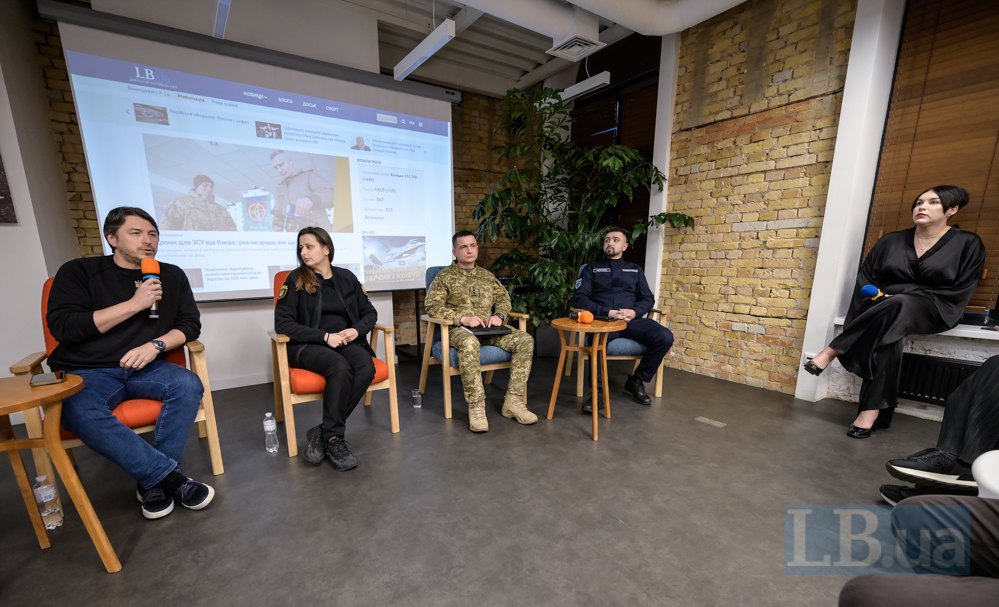
The idea of selling arms abroad was also supported by businessman Ihor Liski, who said that any problems associated with this could be solved by licensing. And Ukraine, for example, if it produces more armoured personnel carriers and sells them abroad, could use the money to buy air defence systems and missiles for them.
- Technology
Technology is what will help to repel a stronger and more numerous enemy; what is winning on the battlefield today, explained Deputy Commander-in-Chief Andriy Lebedenko.
Some of them are already operating in Ukraine, but it is critical to improve their quality. After all, Russia is technologically superior, the colonel stressed.
"Russia is very efficiently and with a great advantage using Orlan, Zala, and Supercam reconnaissance and strike systems integrated with certain software that analyses and creates target catalogues, promptly distributes tasks and executes them. The classic way to fight them is with expensive missiles, which, in principle, we have - we manufacture or buy them, but this is a waste of resources. Every downed unmanned reconnaissance system has a price. So why not look towards air-to-air unmanned aerial systems, which will make it cheaper to destroy an enemy drone? But we need the technology," Lebedenko said.
"We have separate reconnaissance units and weapons. Now the task is to put it all together, to reach the best-prepared enterprises that will be able to make sure that we have air-to-air and air-to-ground systems. This will give an impetus to the use of artificial intelligence and swarm technology. The swarm technology. This will significantly increase efficiency," the representative of the General Staff added.
However, Western countries are in no hurry to share technologies with Ukraine, Hanna Hvozdyar complained. In some places (for example, in the United States), it is because the state owns the technology and access to it is a political issue. Somewhere, because of the Cold War paradigm in which most countries still live.
"As it turned out, many countries are legally still living under the laws of the Cold War and are very much in the grip of technology. However, the Ministry of Defence says that Ukraine has a very dynamic situation on the frontline with regard to technology. What the enemy needs today, we will find a solution for tomorrow. They find their own. This is an ongoing process. We explain to our partners that the technologies they keep and do not use in the war will be useless tomorrow," said the representative of the Ministry of Strategic Industries.
The Ukrainian military is currently testing everything provided by its partners in combat conditions. And Ukraine provides them with something they do not have, said Prytula, "incredible experience drenched in blood". And thanks to this, foreign manufacturers can improve their products.
As, for example, happened with the Escalibur - it turned out that it does not work on the battlefield: "One out of 19 hits the target, the rest crushes." The weapon was returned to the manufacturer to improve the technology.
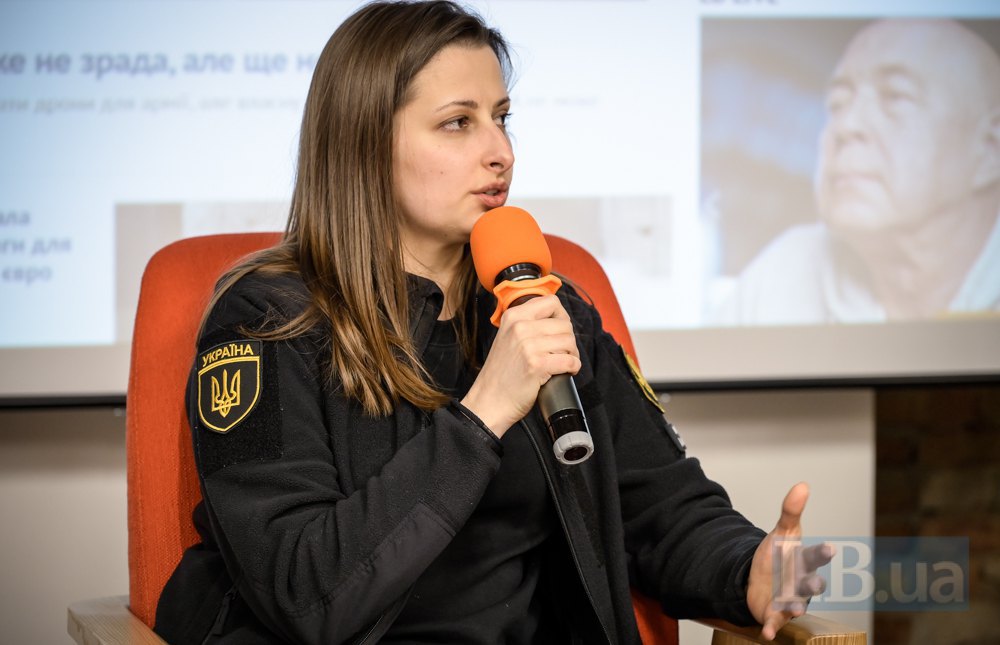
This narrative was the basis for communication with partners, Hanna Hvozdyar added.
"Our argument is that the only battlefield where technology works is Ukraine. And closed technologies in countries at peace will cease to be technologies tomorrow, because this is a very dynamic environment. If our partners provide us with the technology, we will make their technology much more powerful by adding the unique experience that our people gain at a very high cost every day. This will give us an advantage on the frontline, and our partners will get improved technologies. This is the only way out, in my opinion," she emphasised.
Defence industry development strategies
The development of defence technology is all about replacing humans with technology on the battlefield wherever possible, said Hanna Hvozdyar.
"We already have drones, at least for reconnaissance where people used to scout by foot before. We have automated turrets that can be built into a small line of defence on the frontline - and there are no people there."
"We are currently testing medical evacuation platforms because, unfortunately, we lose people under heavy fire - both the wounded and the medics who evacuate them. If we can robotically evacuate a person from heavy fire, it will increase the chances of survival for both," said the representative of the Ministry of Strategic Industries.
Since the Ukrainian defence sector is not able to cover all the needs of the army, innovative solutions are constantly being sought and implemented, she said.
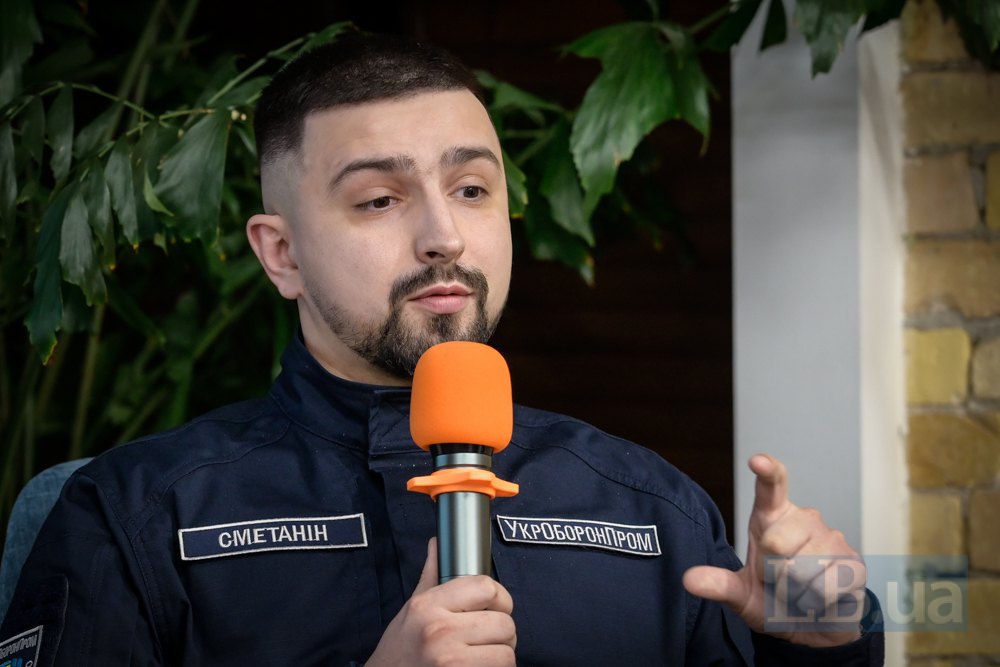
Herman Smetanin noted that today the Ministry of Defence's priority is air defence systems and ammunition. However, the ministry has a scientific institution that studies events on the battlefield and analyses how the war will develop tomorrow. Accordingly, it sets specific technical tasks for manufacturers.
"I am confident that the Ministry of Defence knows the list of documents, nomenclatures and technologies that will be used this year, next year, in a year and in the next five years. This vision exists, it is adjusted from time to time in accordance with the situation on the battlefield, but rest assured that our military fully understands the situation," Smetanin said.
Col Andriy Lebedenko is convinced that the first thing that needs to be done is to replace the riflemen and bomb disposal experts on the front line with robots.
Businessman Ihor Liski believes that Ukraine needs a strategic institution like the US DARPA (Defense Advanced Research Projects Agency - Ed.), which would collect the scientific potential of warfare and involve it in the development of weapons and equipment. But any strategy should work to save the lives of every soldier, he concluded.
Weapons of victory
According to Col Andriy Lebedenko, the weapon of victory for Ukraine is the latest systems that will be as efficient as possible and will protect the military.
"There is no single weapon. Each task, each threat will have its own system. And it already exists. But the main thing is technology," the military said.
Herman Smetanin also believes that there can be no universal weapon for victory.
"There is a strategy for the development of weapons produced in Ukraine. It will be gradually supplied to the army. The military will see it on the battlefield, everyone else will see it in the news," he said.
Hanna Hvozdyar, a representative of the Ministry of Strategic Industries, is convinced that strategy is the weapon of victory for Ukraine.
"We know about the enemy's production plans, we know about the technologies they are currently working on. We have all the information, we are trying to react... All technologies are immediately tested at the frontline. Therefore, in my opinion, our weapon of victory is strategy. A good strategy for using our limited resources. And another key to victory is unity.
When we quarrel with each other, this is our weak point. The enemy acts very clearly: when the task is assigned, it is carried out. We were given a task, we all quarreled with each other, and then someone went off to do it heroically. We have to stand up for each other. This is our victory, not some magical invention that will save us all," she stressed.
